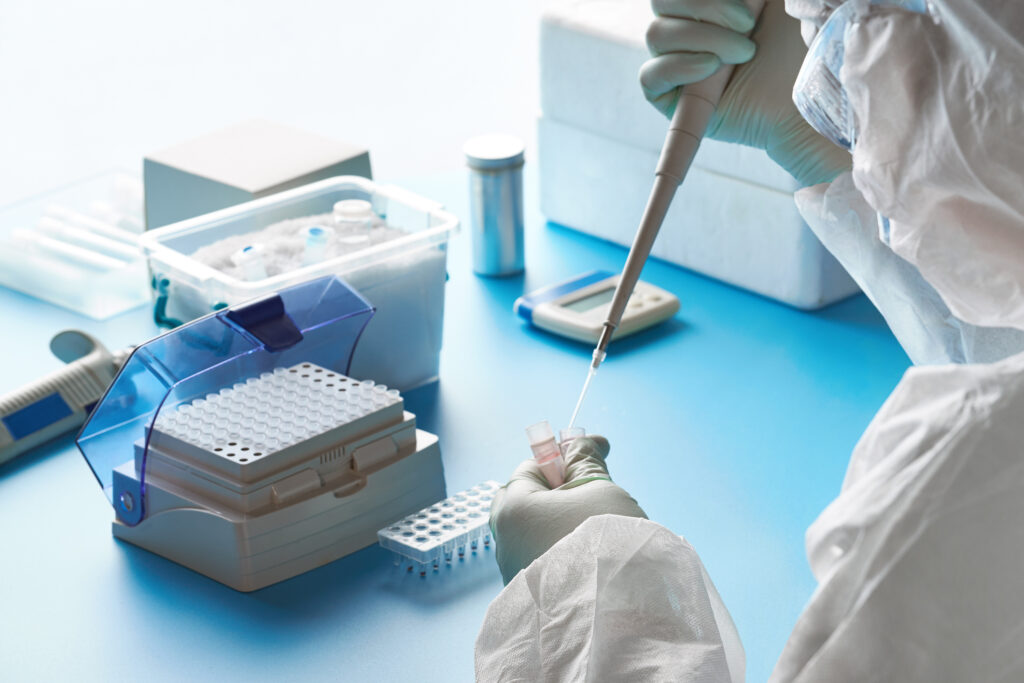Genetic analysis is a process by which we can understand an individual’s risk for developing a rare disease.
Genetic analysis essentially has two main purposes. Its first purpose is to determine if an individual should proceed with genetic testing, which will more conclusively determine the presence of a rare disease.
The second purpose is to help researchers and geneticists understand more about gene mutations and the causes of rare diseases. This is especially important in improving the rate of accurate diagnosis for rare disease patients.
Genetic analysis: the current challenges
Rare diseases are challenging to diagnose. Many are orphan syndromes, meaning there is limited research into their causes and symptoms. Most rare disease patients and their families face years spent in pursuit of a conclusive genetic diagnosis. This wait can be incredibly stressful for rare disease patients and can have a very real and detrimental effect on their lives, as they struggle to manage symptoms of a syndrome they have no name for.
Rare disease misdiagnosis is also a very real problem in the world of genetic syndromes. Improving genetic analysis at the start of the diagnostic process goes a long way in reducing the rates of misdiagnosis and its subsequent consequences, such as inadequate care and support necessary for living with a rare disease.
However, the more we can understand the causes and presentation of rare syndromes, the better prepared we are to provide patients with genetic analysis, genetic testing, and genetic counseling tools to help them reach a diagnosis faster, and with greater accuracy.
Traditional genetic analysis
Traditionally, the process of genetic analysis has involved the sampling of DNA to identify mutations in the genes that may place an individual at risk of developing a genetic syndrome. This is an approach that has required in-person, clinical appointments. This in-person requirement has in turn led to the creation of many obstacles surrounding access to genetic analysis, for many families.
Recent developments in the field of health, and more specifically telegenetics, however have seen the development of AI solutions for genetic analysis that make the entire process faster and more accurate. In the process, they are offering hope to the thousands of potential rare disease patients stranded in their diagnostic journey or facing a misdiagnosis.
The use of advanced facial screening technologies as a tool for genetic analysis also increases the accessibility of the process for many patients who require it. Telegenetic platforms make genetic analysis accessible to everyone, often all they require is a WIFI connection and a device with a camera.
Advanced genetic analysis
Online genetic analysis connects patients and their families with an impactful tool that can provide important information about their risk for a genetic syndrome. This in turn can provide families, and their doctors, with crucial information that can lead to the right diagnosis, in a faster time.
Advanced genetic analysis starts with a single photo. Once uploaded to a telegenetics platform this image will be screened to identify markers, patterns, and features of genetic syndromes, and to generate a genetic analysis report.
The next step in the genetic analysis process is critical to the entire genetic diagnosis process itself. This step involves a virtual, online meeting with a genetic counselor to help patients and their families better understand the results of the facial screening analysis. Genetic counselors will be able to interpret the findings of the genetic analysis and explore with patients their risk for a rare disease or syndrome. They will also be able to connect patients to a network of geneticists to explore genetic testing options.
Why is genetic analysis important?
Genetic analysis is one step on the way to a concrete diagnosis of a rare disease or genetic syndrome. However it is an important initial step, and if done properly, can alter the entire diagnostic process.
Advancements in genetic analysis technology and new genetic analysis methods make it possible to identify, much earlier in the diagnostic process, the potential for rare diseases and the risk for an individual in terms of developing a syndrome.
These advancements also make it possible, for the first time, for patients to directly access genetic analysis technology and reports, without needing to wait for a medical referral or clinical appointment. Patients can take their diagnostic journey into their own hands and connect with a more advanced and accurate solution from the comfort of their own homes.
Health, including telegenetic analysis, solutions empower patients. They enhance the care of rare disease patients, with faster diagnosis times, and by connecting them to genetic counselors, and genetic experts, who can help them confirm a diagnosis and provide the necessary support for living with a genetic syndrome.



